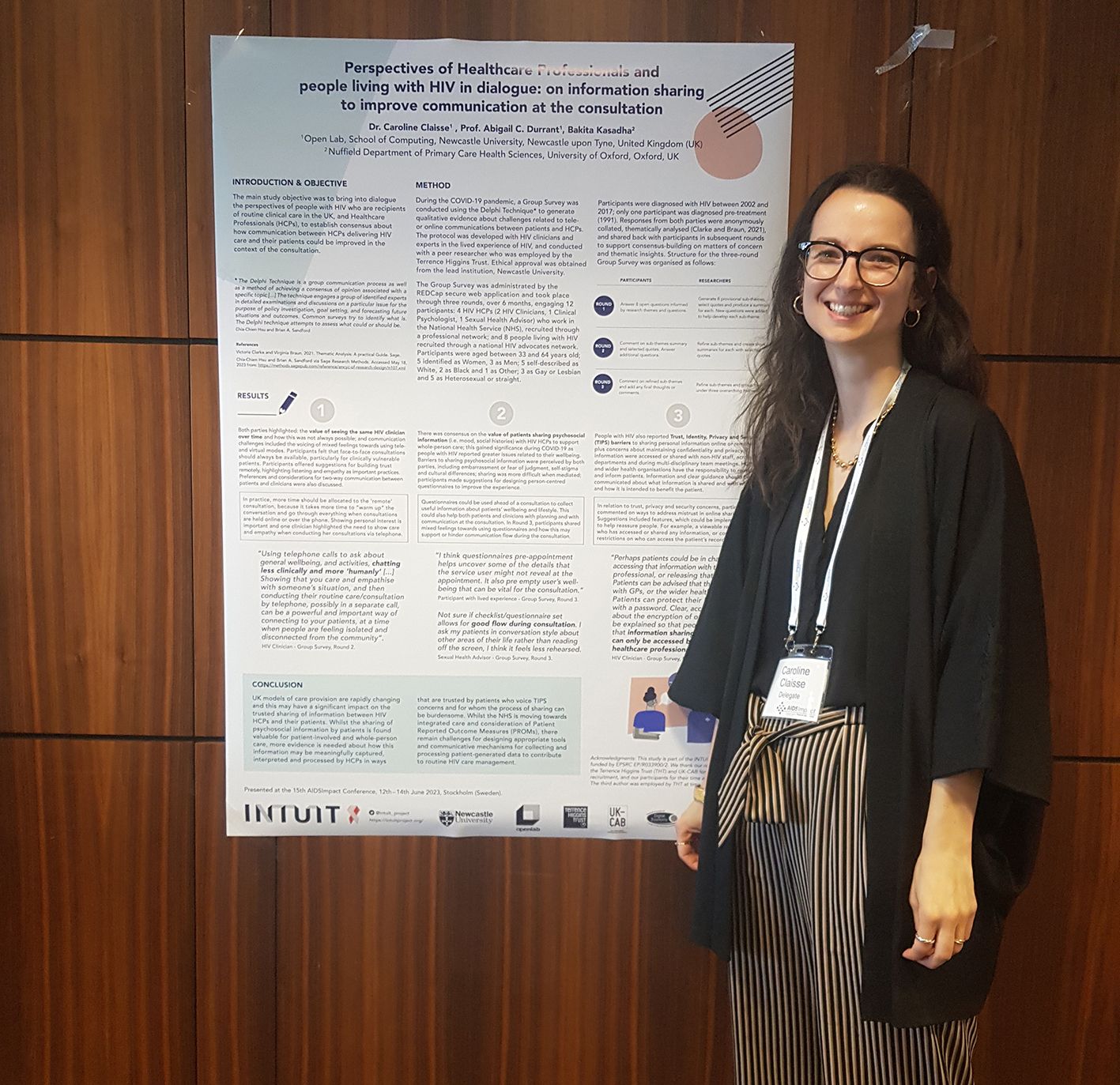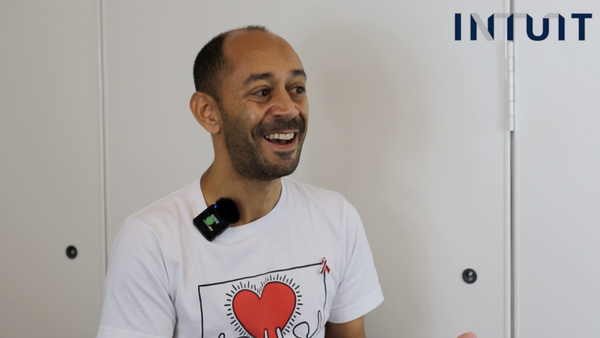News
Research bringing experts in the lived experience of HIV into dialogue with doctors, charity workers, and others about the management of HIV care
December 1st is World AIDS Day: https://worldaidsday.org/. World AIDS Day aims to share real life stories about people’s experiences of living with HIV today. This year’s theme is ‘Let Communities Lead’, and celebrates ‘the strength, resilience and diversity of the communities most affected’.
There are different ways to get involved to #RockTheRibbon and raise awareness about living with HIV.
- The National AIDS Trust has launched a website with information on how to get involved: https://www.nat.org.uk/press-release/announcing-world-aids-day-2023;
- And Terrence Higgins Trust has set out a call to action - a mission to end new cases of HIV in the UK by 2030: https://www.tht.org.uk/take-action/world-aids-day.
Update from EPSRC INTUIT Project Researchers – December 2023
Earlier this year we attended AIDSImpact 2023 ‘Power for Action Now!’ in Stockholm, Sweden. The conference brought together an international crowd to address social and psychological issues related to HIV/AIDS prevention, treatment, and care, for people with HIV to achieve a good quality of life, beyond viral suppression. We were reminded of the need to continue to champion human-centred approaches and creative initiatives as a resource for bringing people together, and for sharing personal experience to connect and learn from each other. Key highlights among others included: learning more about using Patient Reported Outcomes Measures (PROMs) for supporting routine care and patients’ communications at the consultation; and being inspired by women-led initiatives to raise awareness of ageing well with HIV with a focus on experiences of menopause (i.e. Bearded & Flushed led by UK HIV organisations including NAZ, Positively UK, Sophia Forum and 4M Mentor Mothers).

At the conference, Caroline Claisse presented insights from an INTUIT group survey study led by Newcastle University in partnership with Terrence Higgins Trust and UK-CAB, which was conducted during the Covid-19 pandemic with healthcare professionals (HCPs) and people living with HIV. The aim of this study was to bring into dialogue different perspectives and establish shared agreement and understanding on how communication between HCPs delivering HIV care and their patients could be improved in the context of the routine consultation. We also discussed challenges related to telephone and online communications between patients and HCPs.
This study raised the following considerations:
- the value of seeing the same HIV doctor over time to build a relationship of trust;
- the importance of sharing information about how an individual with HIV is feeling in daily life, to support care for the whole person;
- and privacy and security concerns related to sharing personal health information remotely – e.g. online, via the telephone or a web-based teleconference.
Our insights are timely as UK models of care provision are rapidly changing. We find that this may have a significant impact on the trusted sharing of information between HCPs and their patients. Whilst the sharing of information about social and emotional wellbeing by patients is found valuable, more evidence is needed about how this information may be meaningfully collected and made sense of by doctors in ways that are trusted by patients who voice concerns, and for whom the process of sharing can be burdensome.
We were invited to develop our presentation into a journal article, which was recently published in the AIDSCare Journal – available to download and read at this link: https://doi.org/10.1080/09540121.2023.2282034.
This study could not have been conducted without the expert guidance of HIV community representatives and peer researchers who supported recruitment and who were involved in the design, conduct and analysis of the research.
Richard Brown, at Northumbria University, led a recently published paper with INTUIT collaborators reporting on a study about ‘Health Stigma on Twitter: Investigating the Prevalence and Type of Stigma Communication in Tweets about Different Conditions and Disorders’. This paper has just been published in Frontiers in Communication, section Health Communication, and is available to download and read here: https://doi.org/10.3389/fcomm.2023.1264373.
Sarah Bennett, at University of Edinburgh, led a paper reporting on an INTUIT interview study about concerns raised by diverse stakeholders in the HIV sector. Specifically, the work paper reflects on how data-driven technologies and services for health and care risk leading to social injustices. The paper was presented at the AAAI/ACM Conference on AI, Ethics, and Society, in August 2023, and is entitled ‘Unpicking Epistemic Injustices in Digital Health: On the Implications of Designing Data-Driven Technologies for the Management of Long-Term Conditions’ – available to download and read here: https://doi.org/10.1145/3600211.3604684.
Please email the Principal Investigator for INTUIT, Abigail Durrant, if you would like to find out more about this study or the research project: abigail.durrant@newcastle.ac.uk.


